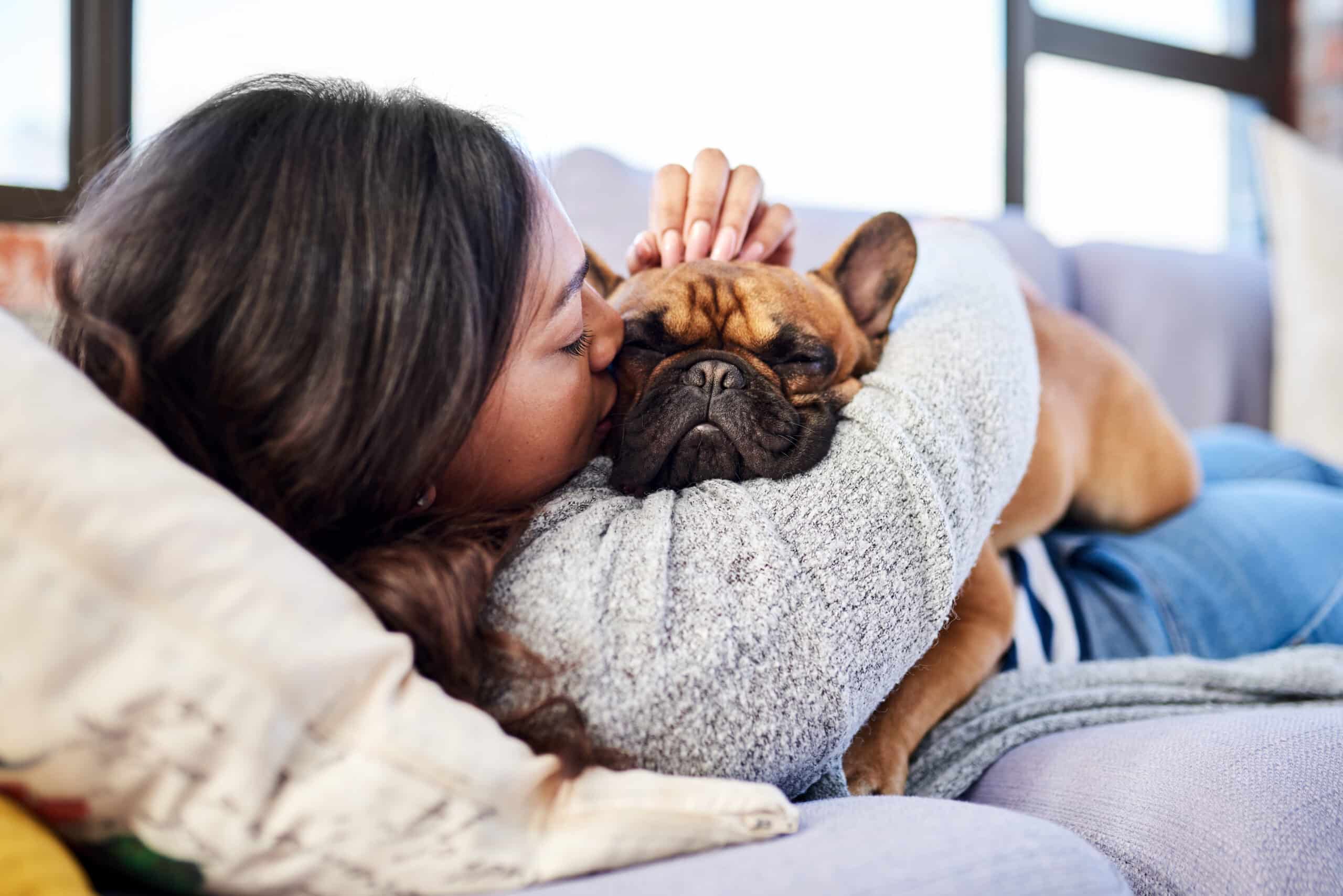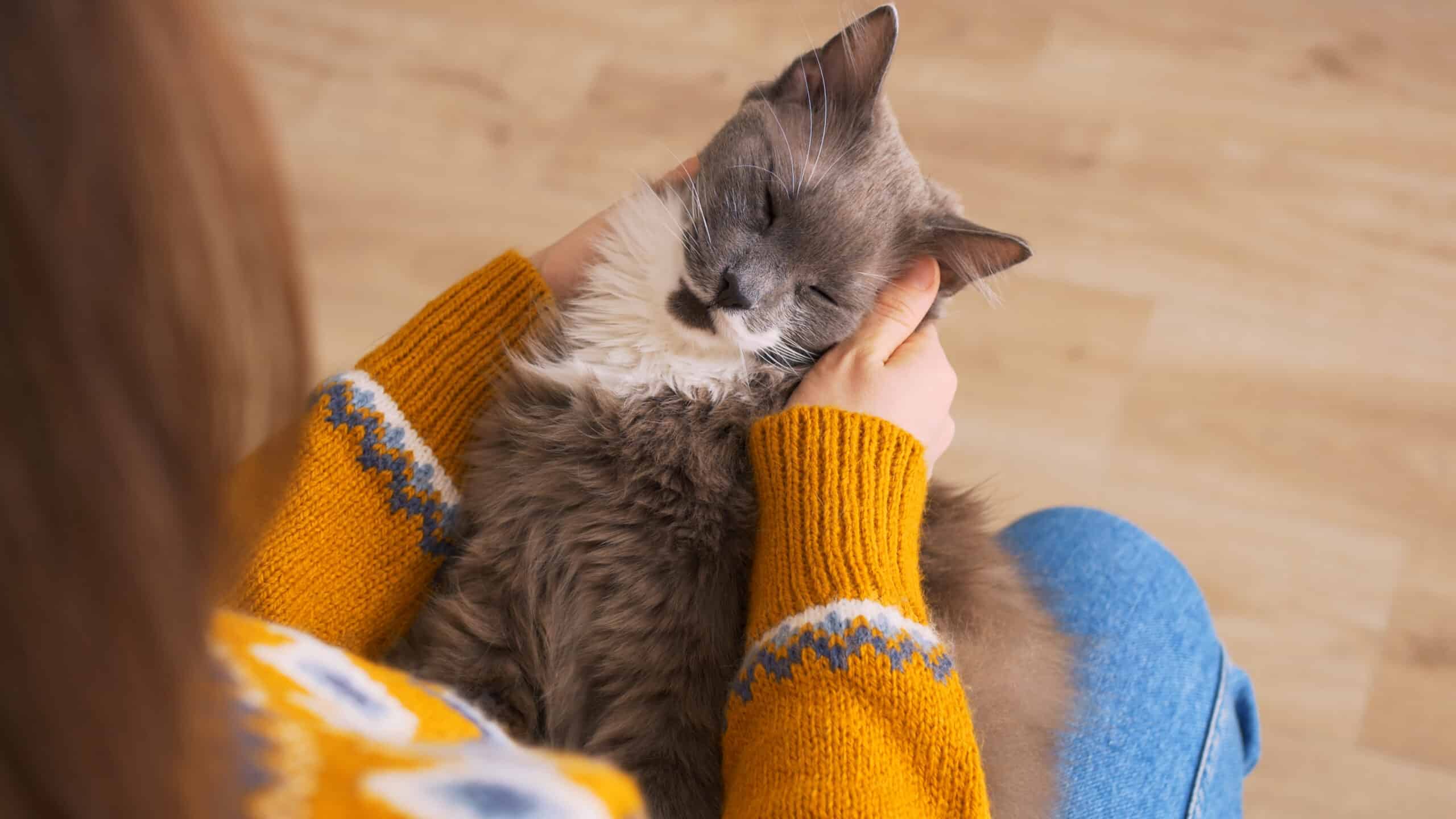Written by Dr. Gina Singleton, Caring Pathways Veterinarian in Fort Collins, CO
In this article, we’ll explore the importance of considering your own quality of life when making end-of-life care decisions for your pet. At Caring Pathways, we understand the profound emotional journey of caring for a beloved pet. Especially as they near the end of their life. Making decisions about their care can be incredibly difficult, filled with a mix of emotions and concerns. We recognize the deep bond you share with your furry companion and are here to offer guidance and support every step of the way.

Understanding Your Pet’s Changing Needs
As your beloved pet ages, you may have found that their care has become a greater responsibility for you and your family. This care can vary depending on what specific needs your pet has. Perhaps he has arthritis and can no longer use the stairs safely. This could mean that you have installed baby gates at the top and bottom, or that you need to carry him up and down or use a harness to help him. Over time, this may have progressed to you sleeping where he is most comfortable sleeping such as downstairs on the couch.
Managing Chronic Conditions
Cats with kidney failure will commonly need to drink more water and urinate more. They can require a special diet or become less enthusiastic about eating, leading to the need to offer a variety of foods or even be hand fed. As the disease progresses, even though they are drinking more water, dehydration can occur. This might result in you needing to give them fluids under this skin. They may need to be given mediation, which can become more difficult over time.
Sometimes pets will have chronic vomiting or diarrhea and despite medication these problems persist and worsen. This can result in daily cleaning or needing to place potty pads or area rugs in the house.

Emotional and Physical Impact on Your Quality of Life
This type of care can be exhausting- physically and emotionally.
Many of us have busy lives: working and caring for children or aging parents. Travel can pose an especially challenging situation. This exhaustion very often leads to unpleasant feelings such as frustration, sadness, resentment and guilt.
Recognizing Caregiver Strain on Your Quality of Life
When I am discussing a pet’s quality of life, I always ask how the pet’s care is affecting the caregiver. This question can sometimes come as a surprise but more often it is a relief that I have asked. Sometimes this issue is at the heart of what a pet parent is feeling but there is some shame in even thinking about it.

Normalizing Feelings
All of these feelings and thoughts are absolutely normal. They do not mean you do not love your sweet companion. Grieving the loss of a pet sometimes starts before their passing and guilt is a very normal part of grief.
The Importance in Caring for Your Quality of Life
Caring for yourself is incredibly important during this time. For example, you might not be getting enough sleep because you are getting up several times a night to care for your pet. This can have serious adverse effects on your ability to function.
More examples of this are:
- If you are not able to leave the house for work.
- Not able to run errands.
- Or give yourself a break and be with friends.
This can lead to resentment and frustration.
Remember that you are your pet’s caregiver.
Considering your quality of life as part of the decision of when it is time to say goodbye is not only OK, but admirable. I firmly believe that if your pet could tell you, they would say it is OK, too.
Helpful Resources
- Complete our Pathway to Care Assessment to better understand which Caring Pathways service might be best for your pet.
- Consider scheduling a virtual TeleAdvice appointment.
- How do I know if my pet is in pain?
About the Author: Gina Singleton, DVM
Dr. Gina started her veterinary career at 16 years of age- working in a small animal hospital in Virginia. She continued to work in many veterinary hospitals in several states doing just about every job she could. From becoming a receptionist to eventually becoming a veterinarian.
Gina joined Caring Pathways in September 2020, having just moved back from Maine in August. She is more than excited to have done so. Having been in general practice for so many years, she found that her favorite part of her job was working with senior pets and their human companions.
Although the end-of-life decision can be very difficult, she finds that this ultimate act of love that a human can give to their beloved pet is an honor to be a part of.

